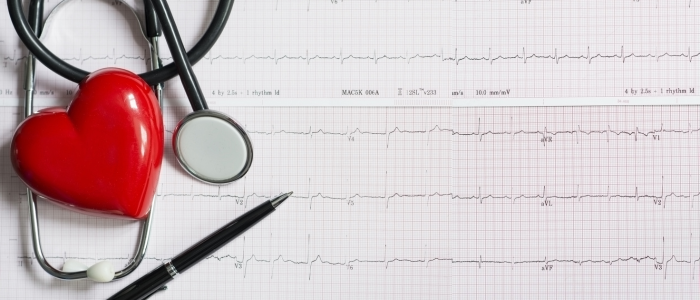Did you know? Coronary heart disease is the world’s biggest killer, responsible for 16% of the world’s total deaths.
The good news is that there are many ways to fight and even defeat heart problems.
World Heart Day, 29 September, is a special day for hearts everywhere, aiming to remind the world to take care of this crucial muscular organ.
This year’s campaign focuses on the essential step of knowing our hearts first—because we love and protect what we know.
A healthy heart means a happy life
At Duff Street Clinic, we’re firm believers in all things health and wellbeing, and that means highlighting the impact that so many health areas have on hearts.
Heart health can be impacted by mental health and stress issues, diet and exercise, diabetes, chronic disease and of course, lifestyle choices.
As such, we’ve called on our experts to offer these top things to know about heart health.

1. KNOW YOUR HEART HEALTH
Your diet, lifestyle, genes and family history, even work environment and stress levels all play a role in determining your heart’s health.
And we’re talking about heart health specific to you.
If it’s been a while since your last check-up, make an appointment. There are many reasons why, for example:
- You’ll know if your heart is healthy per your circumstances
- Make necessary lifestyle changes should they be required (before it’s too late)
- Your doctor might find something in its early stages, which typically increases the chances of treatment
Your heart health is unique to you, even if your lifestyle and diet are similar to someone you live with.
2. THE RISK FACTORS
Risk factors mean the key elements that increase the chances of heart disease.
High blood pressure and high LDL cholesterol levels are major culprits, as they strain the heart and narrow arteries.
Smoking is another significant risk, damaging the heart and vessels.
Diabetes, obesity, and minimal physical exercise also play a part in heart issues by harming blood vessels and overall health.
Here are a few specific risks:
Alcohol consumption
- Drinking too much alcohol can lead to high blood pressure, irregular heart rhythms, and cardiomyopathy.
- Alcohol Think Again recommends healthy men and women should drink no more than 10 standard drinks a week and no more than 4 standard drinks on any day.
Poor stress management
Chronic stress and an inability to manage it effectively can negatively impact heart health. It may lead to unhealthy coping mechanisms like overeating or smoking, increasing heart disease risk.
Physical inactivity
A sedentary lifestyle with little to no regular physical activity can lead to weight gain, muscle weakness, and poor cardiovascular health, increasing the risk of heart disease.
Important note: being busy isn’t the same as being active.
Poor foods choices like:
- Sugary drinks
- Processed meats
- Sugary snacks
- Fast food / junk food
- Caffeinated energy drinks
- Red meat
- Butter
- Fried foods
3. KNOW THE SIGNS
We mean the signs of an unhealthy heart. To know the signs of a heart attack, check here.
Anyway, knowing what to look out for is crucial, as we see many people writing off warning signs as ‘a bit unfit’ or ‘not as fit as I used to be’, when actually, they can be much more significant.
Common indicators include
- Chest pain or discomfort, often described as pressure, squeezing, or burning, which may radiate to the arms, neck, jaw, or back
- Shortness of breath, especially during physical activity or right after, can signify heart issues
- Irregular heartbeats, dizziness, lightheadedness, and excessive fatigue are also concerning signs
- Swelling in the legs, ankles, feet, or abdomen may indicate fluid retention, often linked to heart problems
It’s crucial to heed these warning signs and seek medical attention when they occur, as early diagnosis and intervention can massively improve the treatment and quality of life for people with heart conditions.
4. MINIMISE STRESS, MAXIMISE SLEEP
Stress and the amount of sleep you get are closely interconnected to heart health.
Chronic stress, whether it’s due to work pressures, personal problems, or other factors, can trigger responses in your body, including the release of stress hormones like cortisol and an increase in heart rate and blood pressure.
These stress responses, especially over a long period of time, can lead to inflammation in the arteries, leading to atherosclerosis, a condition characterised by the accumulation of plaque in the arterial walls.
Over time, this can narrow and stiffen the arteries, increasing the risk of heart attacks and strokes.
Stress can also lead to unhealthy coping mechanisms such as overeating, smoking, or excessive alcohol consumption, all of which can contribute to heart disease.
FYI: ‘Chronic’ simply means persisting for a long period of time.
Adequate sleep, on the other hand, plays an important role in heart health.
During sleep, your body undergoes various processes that help regulate stress hormones, lower blood pressure, and reduce inflammation.
Consistently not getting enough sleep can disrupt these processes and lead to increased stress and risk of conditions like hypertension, obesity, and diabetes, all of which are risk factors for heart disease.

At the end of the day
We all know to take care of our hearts (that’s physically and emotionally!), but it can sometimes get overshadowed by other temptations.
Make it your mission to align yourself with World Heart Day and make at least one change towards a healthier heart.
Some ideas?
- Add a walk with friends to your routine
- Try a healthier meal option a few more times a week
- Increase your step count by walking a little more each day
- Minimise alcohol and of course, scrap smoking (and vaping) completely
- Get a check-up
At Duff Street Clinic, we offer professional and convenient check-ups for all members of our community.
Book today.

